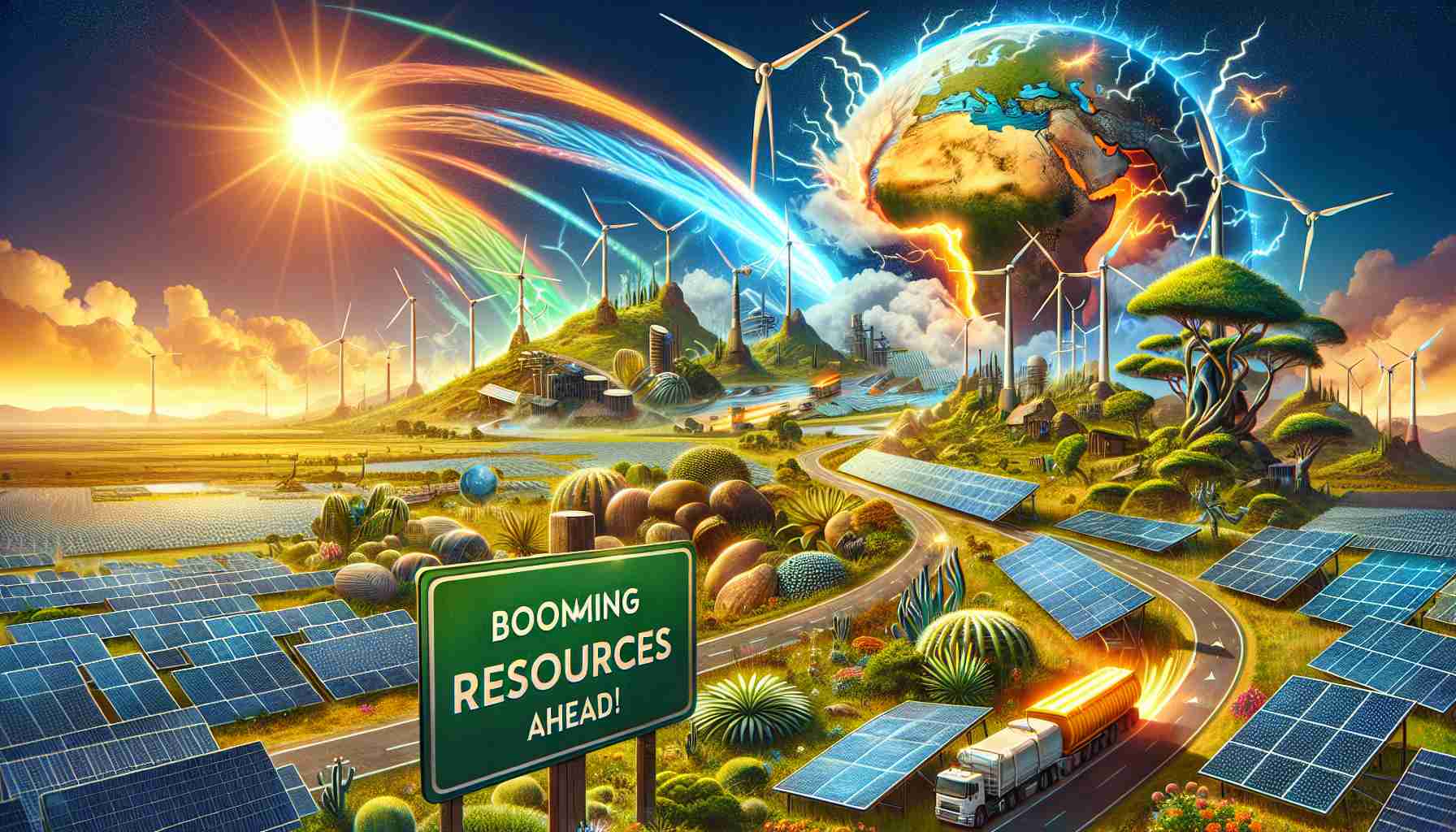
The Rising Tide of Energy Development in Africa
Africa is undergoing a remarkable transformation in its energy landscape, driven by significant investments and discoveries in both fossil fuels and renewable resources. Major energy companies are tapping into the continent’s rich reserves, signaling an imminent energy boom.
In 2023 and beyond, the African energy sector witnessed notable oil and gas discoveries. For instance, the Portuguese firm Galp, alongside Namibia’s National Petroleum Corporation, unveiled a promising light oil find at the Mopane-1X well. Additionally, Shell confirmed substantial oil deposits in Namibia’s offshore areas. Similar successes were reported off the coasts of Ivory Coast and Gabon, marking a trend of increasing exploration and production activities across the region.
Renewable energy is also gaining momentum, with ambitious plans to achieve 300 GW of capacity by 2030, a dramatic increase from the current 72 GW. The African Union has highlighted the urgent need for investment in solar, wind, and geothermal projects, particularly in leading countries like Egypt, Morocco, and Kenya. The significant rise in renewable investments reached around $15 billion in 2023, more than doubling from the previous year.
Moreover, the emergence of Just Energy Transition Partnerships (JETPs) indicates a growing commitment to sustainable development. These multi-national initiatives aim to channel resources into Africa, enhancing energy security and facilitating a gradual shift towards a more diverse and sustainable energy mix.
The future looks bright for Africa as it embarks on this energy revolution, striving for sustainability and energy equity across the continent.
African Energy Revolution: Investments and Innovations Fueling the Future
Africa is poised for an unprecedented energy revolution, characterized by breakthroughs in both fossil fuel extraction and renewable energy advancements. With a surge in investments and discoveries, the continent is attracting global attention.
Recent Developments
Oil and Gas Discoveries
In 2023, the African energy landscape has been enriched by notable oil and gas discoveries. The Portuguese company Galp, in partnership with Namibia’s National Petroleum Corporation, reported a promising light oil find at the Mopane-1X well. Shell’s confirmation of substantial offshore oil deposits in Namibia further indicates the robust potential of the region’s hydrocarbon resources. Similar explorations have yielded successful results off the coasts of Ivory Coast and Gabon, which signals an increasing trend in exploration activities across Africa.
Renewable Energy Targets
On the renewable energy front, significant strides are being made towards ambitious goals. The African Union has set an impressive target of achieving 300 gigawatts (GW) of renewable energy capacity by 2030, up from a current 72 GW. Key players, including Egypt, Morocco, and Kenya, are taking the lead in expanding their solar, wind, and geothermal projects. In 2023, investments in renewable energy have surged, reaching approximately $15 billion—more than doubling the figures from the previous year.
How Just Energy Transition Partnerships Work
What are JETPs?
The Just Energy Transition Partnerships (JETPs) are innovative initiatives aimed at facilitating sustainable energy development. These partnerships engage multiple stakeholders, including governments, private sector entities, and international organizations, to invest in Africa’s energy infrastructure.
Key Objectives
JETPs focus on enhancing energy security while promoting a gradual transition to renewable sources. This collaborative approach is crucial in providing the necessary resources and technology to uplift energy systems and promote equity throughout the continent.
Pros and Cons of Africa’s Energy Transformation
Pros
– Economic Growth: Additional investments in energy can stimulate economic activities and job creation.
– Energy Security: Greater energy independence will reduce reliance on imported fossil fuels.
– Sustainability: A shift towards renewable sources can lead to reduced carbon emissions and environmental impacts.
Cons
– Investment Risks: Political and economic instability in certain regions can deter investment.
– Infrastructure Challenges: Many areas still lack the essential infrastructure needed for energy projects.
– Equity Issues: Ensuring that the energy transition benefits all demographics effectively requires careful management.
Sustainable Energy Insights
The vision for Africa’s energy future is centered around sustainability and equity. Countries are not only focusing on exploiting fossil fuels but are equally committed to expanding renewable energy capabilities. This balanced approach aligns with global sustainability goals and addresses local energy needs effectively.
Challenges Ahead
One of the key challenges African nations face is the need for substantial capital investment and technological support to scale up energy projects. Furthermore, climate change effects could impact both fossil fuel and renewable projects, necessitating a resilient infrastructure and adaptive strategies.
Market Trends and Predictions
As more countries embrace energy diversification, analysts predict that Africa could emerge as a significant player in the global energy market. The combination of abundant natural resources and a youthful population eager for innovation positions Africa to become a leader in sustainable energy.
Conclusion
In conclusion, Africa’s energy landscape is undergoing a transformative phase driven by both fossil fuel exploitation and a vigorous push towards renewable energy sources. With strategic investments and innovative partnerships, the continent is on the brink of an energy revolution that promises not only to enhance its energy security but also to contribute to global sustainability efforts.
For more comprehensive insights into Africa’s energy development, visit the African Development Bank.



